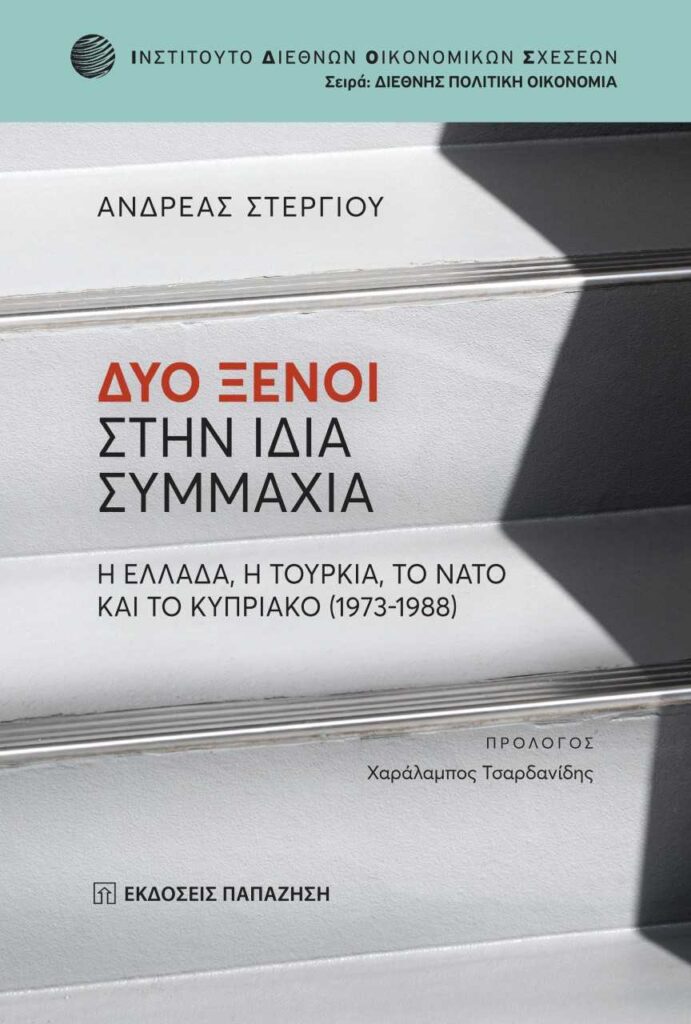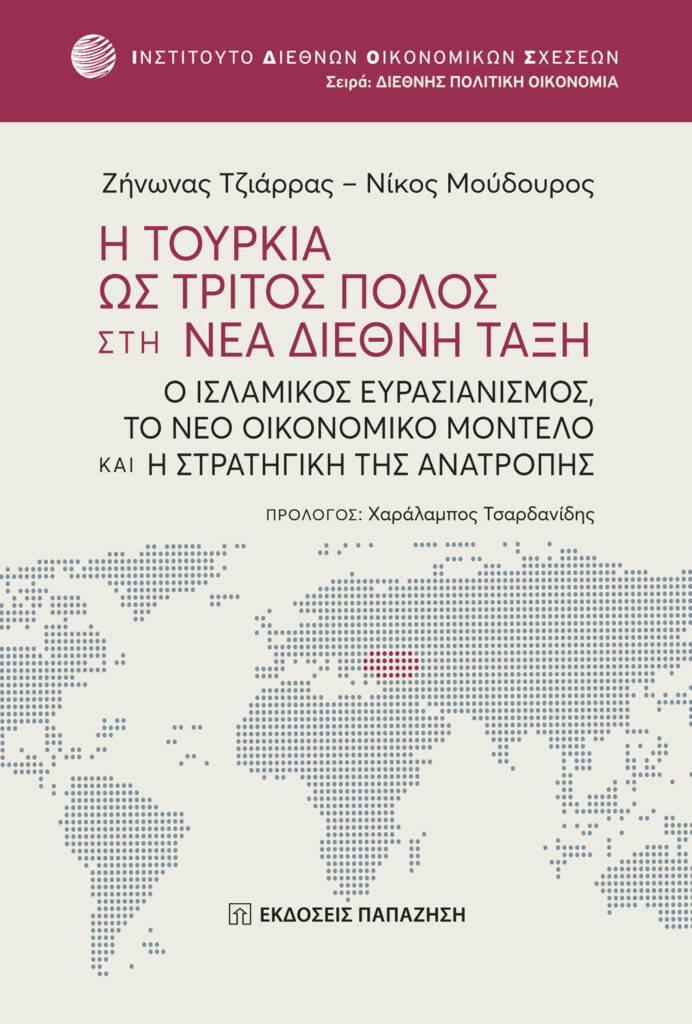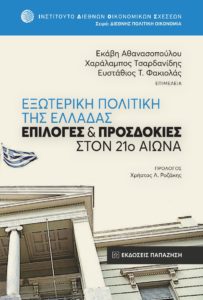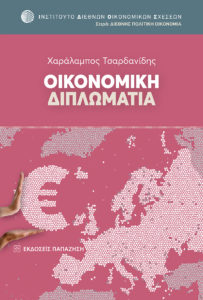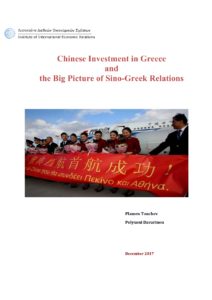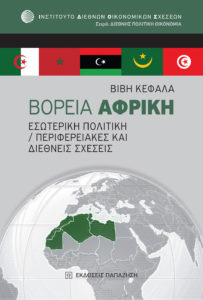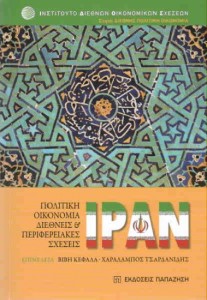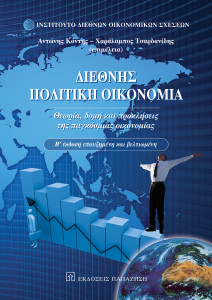Browsing: Research
Programme on the Theory and Practice of International Relations (THEPDIS)
The research programme Theory and Practice of International Relations (THEPDIS) aims to systematically bridge theoretical analysis in the field of International Relations with the empirical study and interpretation of contemporary international developments. Its central objective is the utilization and further development of the epistemological and methodological tools of International Relations as a scientific field, in order to produce innovative, analytically rigorous, and policy-relevant knowledge on critical issues of the international and regional system.
The Programme seeks to contribute both to the theoretical advancement of the discipline of International Relations and to the formulation of well-documented policy recommendations, strengthening the dialogue between academic research and the practical conduct of foreign and international policy.
Content and Research Axes
Researchers, research associates, and visiting scholars participating in the THEPDIS Programme focus on the analysis of contemporary geopolitical and geoeconomic dynamics through interdisciplinary and comparative approaches. More specifically, the Programme covers, inter alia, the following core research axes:
the structure, functioning, and transformations of the international and
regional system of power, security, and balance,
🔹 the formulation and implementation of foreign policy by state and non-state actors,
🔹forms of regional and inter-regional cooperation and competition,
🔹the adaptability, legitimacy, and effectiveness of international and
supranational organizations,
🔹the behaviour and role of transnational actors, networks, and institutions within a multi-level international environment,
🔹the linkage between geopolitical strategies, geoeconomic instruments, and global value chains.
The THEPDIS Programme places particular emphasis on analytical innovation, theoretical pluralism, and methodological rigor, aspiring to function as a hub for research, dialogue, and the production of politically and scientifically valuable knowledge on International Relations in the twenty-first century.
Head of the programme is Mr. Theodoros Tsikas, Political Scientist – International Relations Expert.
Economic Diplomacy Programme
The Research Programme on Economic Diplomacy examines how economic instruments and policies – including trade, investment, sanctions, development assistance and financial tools – shape and are shaped by states’ foreign policy and grand strategy. It focuses on the use of economic power to advance national interests, enhance competitiveness and support broader diplomatic and security objectives. The programme analyses both state actors (ministries, embassies, export–promotion and development agencies) and the role of international organisations, regional institutions and private or transnational actors in economic diplomacy. Particular attention is paid to trade and investment negotiations, FDI attraction policies, the design and impact of economic sanctions and incentives, and their implications for global and regional economic governance. By combining International Relations theory and International Political Economy with rigorous empirical research,
the programme seeks to generate policyrelevant knowledge for policymakers, diplomats, businesses and international organisations.
Head of the Programme is Mr. Vassilis Skronias, First Minister Counsellor (Economic and Commercial Affairs), Hellenic Ministry of Foreign Affairs (retired)
Centre for Middle East Policy Analysis (KE.A.ME.P)
The Middle East has always been and continues to be a region of high political, strategic and economic importance. Its significance also lies in the fact that it interacts in several ways with two other subsystems of note, the first being North Africa and the second the Arab-Persian Gulf region.
Moreover, the Middle East is an extremely complex region, where all contemporary security threats and challenges are present, while regional conflicts, intra- and extra-systemic actors, Islamist terrorism, ideological and political rivalries as well as the conflicting interests of state and non-state actors have led to all kinds of dynamic situations. At the same time, relations of cooperation but also of rivalry have developed, often exacerbated by religious differences. All in all, this state of affairs has led to several long-standing political confrontations and conflicts.
The Middle East is very close to Greece and, therefore, the developments and upheavals taking place in the region cannot but affect it. However, from a scientific point of view, there is no corresponding interest in Greece among Greek scholars and researchers. Furthermore, the analysis concerning the Middle East and the subsystems of North Africa and the Gulf neither corresponds, at least quantitatively, to the rapid changes that have taken place after the Arab uprisings of 2011 nor to the multiple and interrelated problems that presently afflict the region.
The Center for Middle East Policy Analysis, which operates within the Institute of International Economic Relations, aims, on the one hand, at contributing to enriching investigations on the Middle East, North Africa and Gulf affairs and developments and, on the other hand, at becoming a useful tool for understanding, analyzing and explaining what is happening and why.
To achieve these goals, the Centre for Middle East Policy Analysis (KE.A.ME.P.) will carry out research and studies, will organize seminars, conferences and workshops, will post articles and blogs on the Middle East, North Africa and the Gulf, and will also offer insightful analyses of current issues. Finally, it will post the best papers that were presented at the annual Mare Mediterraneum conference, which is organised by the Centre in cooperation with the Institute of International Economic Relations (IDOS).
The Director of the KE.AM.E.P. is Mrs Vivi Kefala, Professor of International Relations in the Greater Middle East and North Africa.
PROGRAMME ON THE POLITICAL ECONOMY OF EUROPEAN SECURITY
The research programme “The Political Economy of European Security” aims to systematically explore, through both theoretical and empirical analysis, the interaction between economic factors and security in Europe. It examines how economic conditions shape security dynamics, as well as how security functions as a prerequisite for sustainable economic development in European countries.
The programme focuses on the analysis of key economic variables that contribute to economic growth, enhance international competitiveness, and strengthen states’ relative power. Particular emphasis is placed on identifying the economic and structural conditions that influence contemporary forms of conflict, both at the transnational and domestic levels. In this context, the research investigates the complex and multidimensional relationship between economic factors and conflict, including the role of trade, economic growth, and globalization. By bridging theoretical frameworks with empirical evidence, the research program seeks to advance the understanding of the political economy of European security and to contribute to informed policy debate on security and economic development in Europe.
Head of the programme is Dr. Floros Flouros, Assistant Professor of International Political Economy at the University of Neapolis Pafos (Cyprus).


